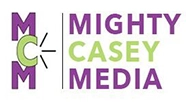 I don’t care what being in love means regarding saying you’re sorry. Personally, I think Erich Segal’s book sucks, but I digress.
I don’t care what being in love means regarding saying you’re sorry. Personally, I think Erich Segal’s book sucks, but I digress.
If you’re in business – running one, managing one, working for one – you’re in the apology business. In fact, being human puts you in the apology business 24/7/365. And business always needs a good dose of human, particularly in the age of the 24-hour news cycle and the Facebook Fan Page wall post.
Not being human, and being willing to admit you made a mistake? #fail.
In a great post on INC.com, Tim Donnelly gives very solid tips on how to approach the brand apology when your business screws the pooch. His #1 tip: just say it. “I’m sorry.” Simple … so why is it so hard for a brand to do that?
I think the root cause of brand cluelessness is that businesses forget that they are, after all, human. They may own skyscrapers in cities around the world, but guess what? Those buildings are full of … people. Doing business with … people.
When your spouse, or your buddy, or your kid do something to hurt you or your feelings, they apologize. You do the same thing when you screw up. (If you don’t, let me know. I know some terrific divorce attorneys.) Same rules apply if you’re J.C. Penney, the example that Donnelly uses in his piece.
Be human, don’t be a brand-droid.
You don’t have to literally fall on your sword, or drape yourself in sackcloth and ashes (I still have random PTSD episodes from 12 years of Catholic education) to apologize. You don’t have to take responsibility for every goof since the beginning of your brand’s recorded history, either. Just say you’re sorry, and then you can move on.
If your factory releases a cloud of toxic gas that kills a few thousand people, you’ll have to do a little more than say “sorry” – just ask Union Carbide. Oh, right, you can’t ask them, because they never actually said they were sorry about poisoning Bhopal. Which explains why they WENT OUT OF BUSINESS.
See how powerful an apology could be? And how not issuing one might literally kill your business?
Use words that convey regret without taking responsibility for every hurt the offended party has ever suffered. Just saying “I’m sorry” can completely defuse a brand revolt. Couple that apology with a clear outline of how you plan to remedy the hurt: priceless. Really. Try it.
We all make mistakes. We’re human, that’s part of the journey. A business that recognizes its own humanity, and that of its customers, by making a sincere apology when they screw up will ultimately drive more loyalty for their brand than a business that’s 24/7 shiny-happy-people. ‘Cause shiny-happy will eventually fog up, or blow up. Trust me on that one.
Be human.
That’s my story, and I’m stickin’ to it …



